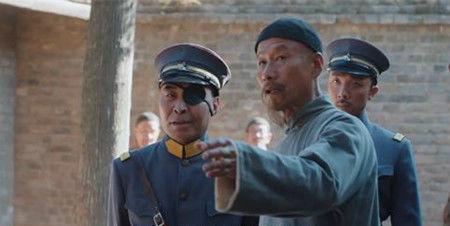From the last years of the Qing Dynasty until the founding of New China, China's 40 million people lived in dire straits, oppressed by the three mountains of bureaucratic feudalism and capitalism. Among them, the period of beiyang warlord rule was the darkest period of China's social development. Most of the warlords in the Republic of China period proceeded from their own interests and fought for many years, and they did not care about the lives of the common people at all. Therefore, most warlords are notorious in Chinese history and have been spurned by the people. But there was one man who was an exception, and before he rectified, the troops under his command were often oppressive to the people in the fish and meat towns, and the soldiers were a scourge on the people. But since his reorganization, his unit has even become a model unit in the War of Resistance Against Japan. This unit is the Zhensong Army led by Liu Zhenhua, which can be called the most bizarre unit in the Republic of China. The Zhensong Army was established in 1912, the origin of this name is that the governor of Henan at that time was named Zhang Zhenfang, and most of the soldiers were from the surrounding area of Songshan, so it was named ZhensongJun.

Most of their members are bandits from a certain hill in Henan, and some hooligans with armed forces. Therefore, the Zhensong Army was very unsupported by the people when it was first established. Because their military discipline is chaotic and their military style is scattered, even if they wear military uniforms, they cannot change the habits of bandits on their bodies, which has brought great trouble to the lives of the local people. This situation did not improve until Liu Zhenhua took office and became the supreme commander of the Zhensong Army. After Liu Zhenhua took office, he carried out a drastic rectification of the Zhensong Army. First of all, strict military discipline was enforced, military style was straightened out, and the troops were led to eliminate the enemy, thus enhancing the combat capability of the Zhensong Army. It also saved the prestige of the Zhen song army. Later, Liu Zhenhua retreated to the background due to mental illness, and Zhen Songjun was led by his younger brother Liu Mao'en.
With the development of the situation, the Zhensong Army was later incorporated into the Fifteenth Army. The Fifteenth Army is a mixture of fish and dragons, and various forces are intertwined. Fortunately, Liu Mao'en was a person who was relatively good at communication, so the Fifteenth Army was not much excluded and suppressed. Later, after the outbreak of the War of Resistance Against Japan, Liu Mao'en led the Fifteenth Army to the anti-Japanese front and engaged in many frontal battles with the Japanese army. At the time of the Battle of Zhongshan, the Fifteenth Army was besieged for many days, and there was basically no possibility of a breakthrough, so someone advised Liu Mao'en to secretly escape. However, Liu Mao'en righteously refused, saying, "I am a soldier, and it is my honor to be able to die on the battlefield, how can I lose my national integrity in order to survive." "In 1944, Japan began a frenzied offensive again.
Many abandoned the city and fled, causing the Japanese to take thirty-eight cities in just thirty-seven days. However, after Liu Mao'en led the Fifteenth Army to defend Luoyang, during the War of Resistance, he did something that touched the people of the country, and it turned out that they fought with the Japanese with their flesh and blood for fourteen days, weeping blood and sorrow. In the face of life and death, many people will expose their cowardly nature and forget the great national righteousness. Even if some people receive so-called advanced education, they will inevitably beg for mercy to the enemy under the butcher's knife. For example, Wang Jingwei, who is in an important position, is willing to be a running dog for the Japanese, and is pointed out by thousands of husbands. However, at the critical juncture of the nation, it was these people who were once hated by the people who bravely stood up. With their own flesh and blood, they have shouldered the burden entrusted by the state, and they have not lost the bloodiness of my Chinese boys.